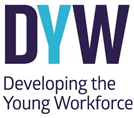Plot

Author – name
Discover more about Roald Dahl
|
Themes – universal ideas
Childhood, consequences, family, growing up.
More to explore – motifs, symbols, context, setting
1920s, accidents, adenoids, alpine plants, autobiography, boarding school, boats, Cardiff, chocolate, climbing, corporal punishment, disability, doctors, exploring, fives, holidays, learning to drive, letters, lies, memories, mice, Norway, photography, rats, shipbrokers, squash, surgery, sweets, teachers, uniforms, wood carving.
Did you know?
Mrs Dahl moved her family to Llandaff which is now part of the city of Cardiff but it was already a city in Roald Dahl’s day because it had a cathedral. You can explore Llandaff on Google Maps’ Streetview.
You can still see many of the places that Roald Dahl grew up in. The tourism organisation, Visit Wales, have created a guide to all of the places associated with Roald Dahl’s childhood.
Further reading
Discover these titles and more
|
Matilda is another Roald Dahl title about families and schools. Some people have suggested that Miss Trunchbull might be based on the Matron. Library copy available.
For more stories set in boarding schools, try the Harry Potter series (training witches and wizards at Hogwarts), the Murder Most Unladylike series by Robin Stevens (crime and detection at Deepdean), or The Gallagher Girls by Ally Carter (trainee spies at The Gallagher Academy). Library copies available.
When Hitler stole Pink Rabbit by Judith Kerr is a great example of an exciting story based on based on the true story of her family’s escape from Nazi Germany. Meanwhile Roald Dahl was flying fighter planes. Read the second part of his not-an-autobiography, Going Solo. Library copy available.
Millions by Frank Cottrell Boyce. Damien and Anthony have discovered a bag full of money. When they decide to keep it, they have to face up to the consequences of their decision. Library copy available.
Varjak Paw by S.F. Said is about taking your life into your own hands, no matter what species you are. Library copy available.
If you’d like to know a bit more about Norway, try the Hilda series of graphic novels by Luke Pearson. They are set in Norway, quite strange, very funny, and include a huge amount of Norwegian myths and legends. Library copies coming soon.
Sick! Bloody moments in the history of medicine by Gael Jennings for all those not horrified enough by Roald Dahl’s doctor stories. Library copy available.
Literacy and Language
Dahl says,
“This is not an autobiography … on the other hand, throughout my young days at school and just afterwards a number of things happened to me that I have never forgotten.”
Do you think Boy is actually an autobiography?
Numeracy
Throughout Boy, Roald Dahl uses pre-decimal money. For example, he says they would get sixpence a week pocket money.
You can find out how much this would be worth by using the National Archives’ Currency converter: 1270–2017.
What could you buy with that amount of money?
Health and Wellbeing
Ronald Dahl talks about the food at boarding school and says the boys were often hungry. Parents would send tuck boxes as treats, with fruit cake, chocolate, fruit, biscuits and jam.
How does this compare with a healthy diet?
Rights Respecting Schools
There is a lot of punishment in Boy, from Headmasters, Matron and prefects.

Compare this with Article 19 :
“ensure that children are protected from all forms of violence, abuse, neglect and bad treatment by their parents or anyone else who looks after them”
Roald Dahl is talking about schools in the 1920s and 1930s. Would this behaviour be acceptable nowadays?
Developing the Young Workforce
 Roald Dahl says he was good at games at school.
Roald Dahl says he was good at games at school.
What skills can you learn from PE that will help you to be a success in your future?

